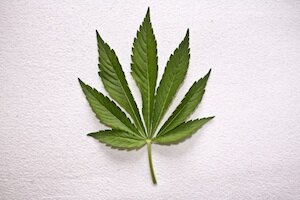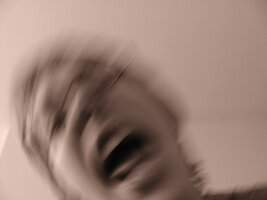Your pain is in my DNA,
Father,
As real as the shrapnel
Still in your legs
Decades later
PTSD Archive
- Sub-Categories
- No categories
PTSD is mental illness characterized by reactions to a traumatic event (or multiple traumatic events) that interfere with one’s life. The person can continually re-experience the traumatic event(s). Common symptoms include insomnia, anxiety, flashbacks, nightmares, hypervigilance, irritability, and anger.
Basic Articles
My Experience with PTSD (Hanners)
Ooh-Rah

My Experience with Medical Marijuana as a Psychiatric Medication and Harm Reduction Strategy

Trigger Warnings: suicidal ideation, grief, alcoholism, drug use.
When I first came to medical marijuana, I was desperate. Fighting Schizoaffective Disorder, alcoholism, PTSD, the recent death of my wife, chronic anxiety, and newly recovered childhood abuse memories, all I wanted was to be put out of my misery. I told my therapist, “When an animal is broken, you either shoot it or put it out to pasture comfortably, I’ll take either one.”
The Dirty Road

When I was 23 I lived in Calgary. One day I was driving down the highway as I was headed up to Edmonton for the weekend. I was picking up this horrible smell. I couldn’t pinpoint what it was but it smelled something like a sewer had blown up. I couldn’t tell where it was coming from. I certainly hoped it wasn’t me. About 10 minutes passed and I saw the cause of the stench. There was an accident and a huge manure truck had tipped over. All the shit spilled out over the highway. The police and firetrucks were there, as were a couple of hazmat trucks. It was a filthy mess and cars had to be navigated through the mess.
Living with panic attacks

When I panic, it feels like my heart is stopping, or that my guts have been turned inside out, or that some sort of massive steam shovel or something has pulled out all my insides and rearranged them and dumped them into random places in my body. Sometimes I feel like the walls are falling in on me, and I can feel the space I am in (or at least my perception of it) going dark. Sometimes I start self-harming by punching myself or slapping myself or punching walls or hard objects or hitting my head against them. Sometimes I become dissociative and do not remember the incident. Sometimes none of these things happen and it manifests quite differently.
As The Wheel Turns: New Diagnosis

Three years ago, when I FINALLY got some psychiatric help for an episode that was already almost a year old at that point (thanks for nothing), my then-psychiatrist diagnosed me with panic disorder/agoraphobia, OCD, Borderline Personality Disorder, depressive disorder, dissociative disorder, and Eating Disorder Not Otherwise Specified. Believe it or not, I was okay with that. It gave me something to hold onto, because I couldn’t make sense out of what was happening to me anymore. By the time I got in to see him, it was already too late. The damage was done. I will never fully recover. It’s not pessimism, just plain fact. Too much has happened to me, and rearranged my brain and how I perceive things.
Hysterical Woman Problems: Jealousy

One of the most common things people with BPD have in common is abandonment/attachment issues. Mine run incredibly deep & I feel that I need to warn people about in advance so they can give emotional consent about whether or not they want to invest in a relationship with me. I feel the need to warn them that I’m incredibly sensitive, have a lot of unexplainable triggers that result in dissociation (a whole other article!), and that I have problems trusting that people aren’t going to randomly disappear. And while I own these feelings, actively work on them & and try my hardest not to bring them into my relationships (often going as far as to isolate myself for periods of time when I’m feeling them), they still come up. They still permeate every single aspect of my life. With such BIG emotions, I have to ask for a whole lot of patience & understanding in all types of relationships. People who are diagnosed with BPD often have the tendency to either dive in way too deep or constantly prevent themselves from dipping their toes in the water at all, all due to fears of abandonment. Some of us are trying our hardest every second of the day to figure out some sort of healthy balance for our interpersonal relationships to the point where it gets super confusing. Many of us are very, very tired a lot of the time because of this. Sometimes, I sit around and think about how fucking un-cute that must sound to all of my potential dates and I feel really fucking defeated & lonely.
I want Sexual Accountability

Trigger Warning: Mention of rape
I am beginning to pathologize the sexual desperation I have felt for a cis-male-flesh-cocked lover in my life lately. This is new for me as I have mostly never been able to enjoy penis-centric heterosexuality and I consider myself exclusively queer. I have been incredibly weighed down by my sexual dysfunction for my entire sexual life. By sexual dysfunction, I mean my inability to experience healthy arousal, be orgasmic and/or connect sexually with another person without fear of becoming triggered. I haven’t had many positive end results when attempting to experience sexual pleasure with another person of any gender/orientation.
“Good” Victim, “Good” Self-Care

I would like to welcome the newest member of our writing team, Nikki. In her first post with us, she talks about the expectations placed on abuse victims/survivors. Thanks for sharing with us, Nikki!
There was a thing going around Tumblr that I can’t find now because I still don’t totally understand Tumblr, and it was about being a “good abuse victim.” How a “good victim” never gets involved with abusers again. “Good victims” have scars to prove their abuse, they get everything documented, they go right into therapy. They get fixed, they don’t get abused again. “Good victims” publicly call out their abusers… or wait, is it that “good victims” just talk about it with people close to them and work it out themselves and never make a scene? I don’t know, I never did it “right.” I marched around calling myself a Survivor for years which, to me, was like a “better victim,” a stronger one. Cuz when you’re a victim you’re weak and when you’re a survivor you’re strong and you did “good victim” properly and graduated. I said FUCK YOU to victimhood like it was bad. But in retrospect that’s saying there’s a right and wrong way to handle abuse, and that’s bullshit. As a repeat VICTIM of abuse I wanted to look strong even though repeat abuse makes people look weak. But fuck these hierarchies of who handles abuse the best. I am a victim of abuse and I’m surviving.
My Experience With Depression (Yael)

I would like to welcome the newest member of our writing team, Yael Cohen. In her first post with us, she tells her story of battling with depression. Thanks for sharing with us, Yael!
Trigger Warnings: Suicidal ideation, rape, sexual assault
I havent always been this way, when I was younger I like to think I was a pretty normal, what we would now refer to as a gender fluid child. I was born with an intersex spectrum disorder. My depression started when I was about eight, as at the time I was being raped by a family “friend.” This would lead later to a diagnosis of Post Traumatic Stress Disorder (at age 9) and Major Depressive Illness (at age 16) after a stay in the psychiatric ward for suicidal ideation. To top it off I spent much of my formative years in hospitals as I was born with several problems physically. Just to add to my depressed mood.
Group Therapy – Panic and Anxiety, Session 1

Trigger Warning: mention of rape, sexual assault
This is the first of an 8 week series reviewing panic and anxiety from a group therapy point of view. It is based on the group therapy services available through Langley Memorial Hospital. Feel free to follow along and answer the questions posted in each section.
Session 1: Exploring Anxiety Disorders
- 1
- 2
